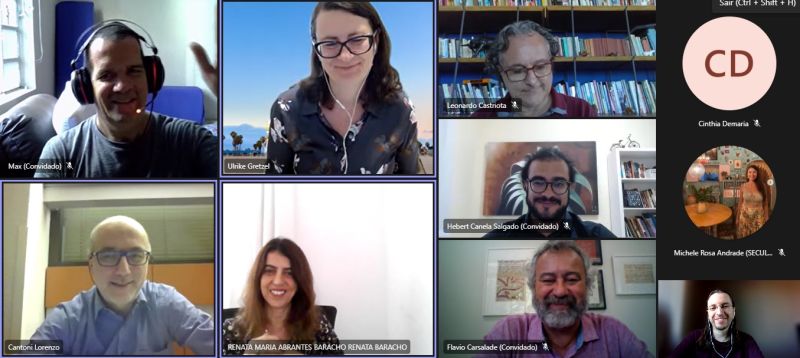
Congratulations to, Rafael Oliveira, who finished his PhD journey in March 2022! Rafael worked on the development of a model of cultural sustainability indicators for the management of tangible and intangible heritage, mainly in tourist places enlisted as World Heritage Sites.
The thesis was supervised by Prof. Renata Baracho and co-supervised by chair holder, Prof. Cantoni.
Abstract
It is known that the concept of sustainability is defined by the harmonious development between social, economic and environmental dimensions. This causes the role of culture to be undervalued in policies. Even in tourism, an activity that has culture as a critical element in development, its role is not clearly described. One example is the World Heritage Sites, where the discussion on cultural sustainability for tourism is incipient. This research aims to investigate how cultural sustainability can improve the management of heritage sites aimed at tourism. To this end, this study used the Action Design Research (ADR) methodology in order to develop a conceptual model on the subject and propose a questionnaire as a model to be used for heritage assessment by tourists. The study was divided into four stages. The first focused on the diagnosis of the problem through a systematic literature review, a quantitative survey on the perception of 60 managers of cultural heritage of humanity on the subject, as well as a qualitative study from the collection and analysis of 2750 comments from visitors in attractions registered on the travel platform known as TripAdvisor. The second stage established a proposed conceptual model and evaluation questionnaire that were tested and validated in the third stage of implementation. In this stage, 16 interviews were conducted with managers and heritage experts in Brazil and Switzerland and evaluation of the collection tool in 13 cultural heritage sites in Switzerland through the participant observation method. In the fourth stage, it was possible to identify the role of culture in the concept of sustainability based on heritage, elaborate a definition and a framework on the subject through the tourism logic and propose a questionnaire as a model to be used for heritage assessment by tourists. The results presented can help heritage managers to develop strategies to improve visitation to cultural heritage sites based on the concepts of cultural sustainability, generating direct and indirect benefits for the current and future generations.